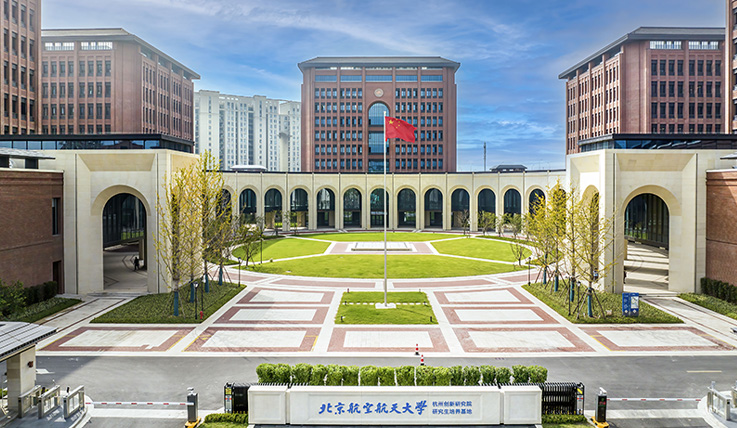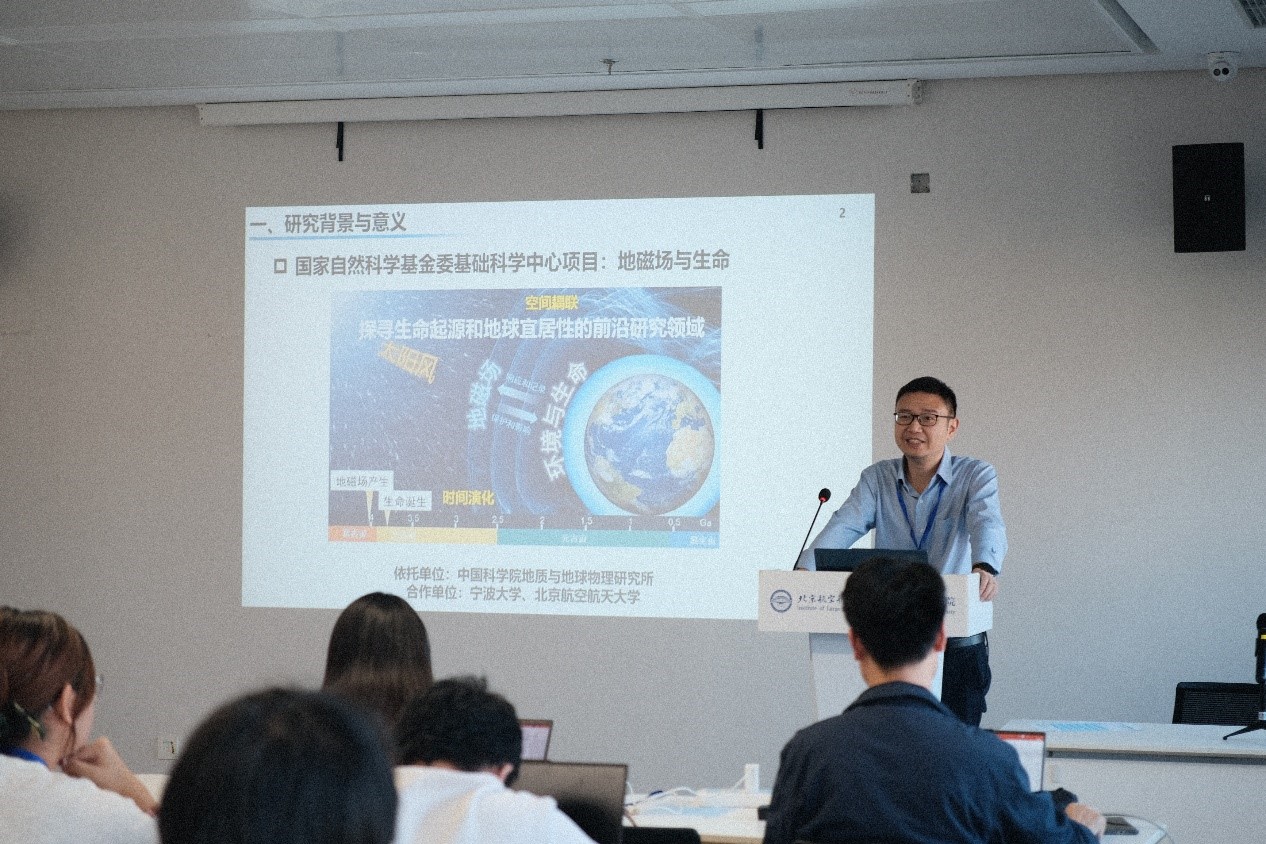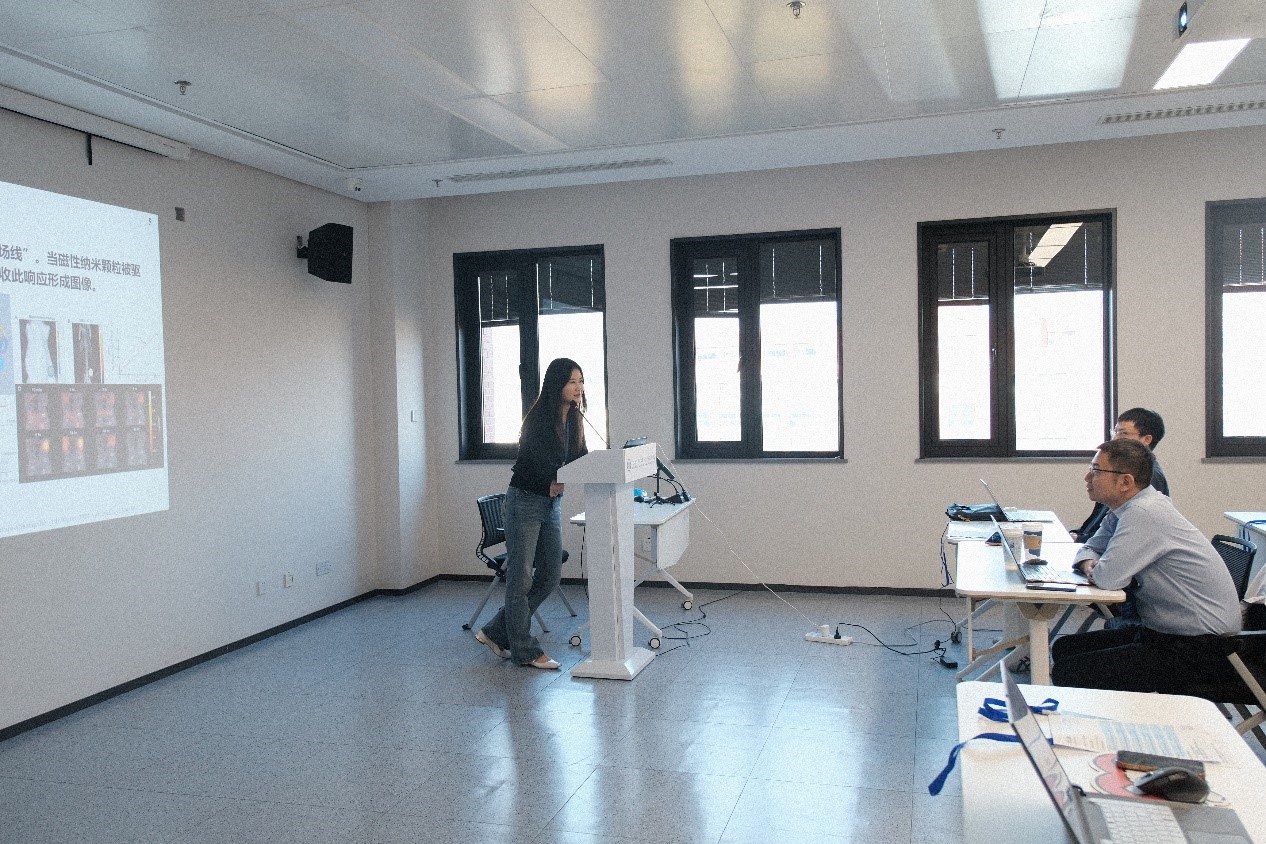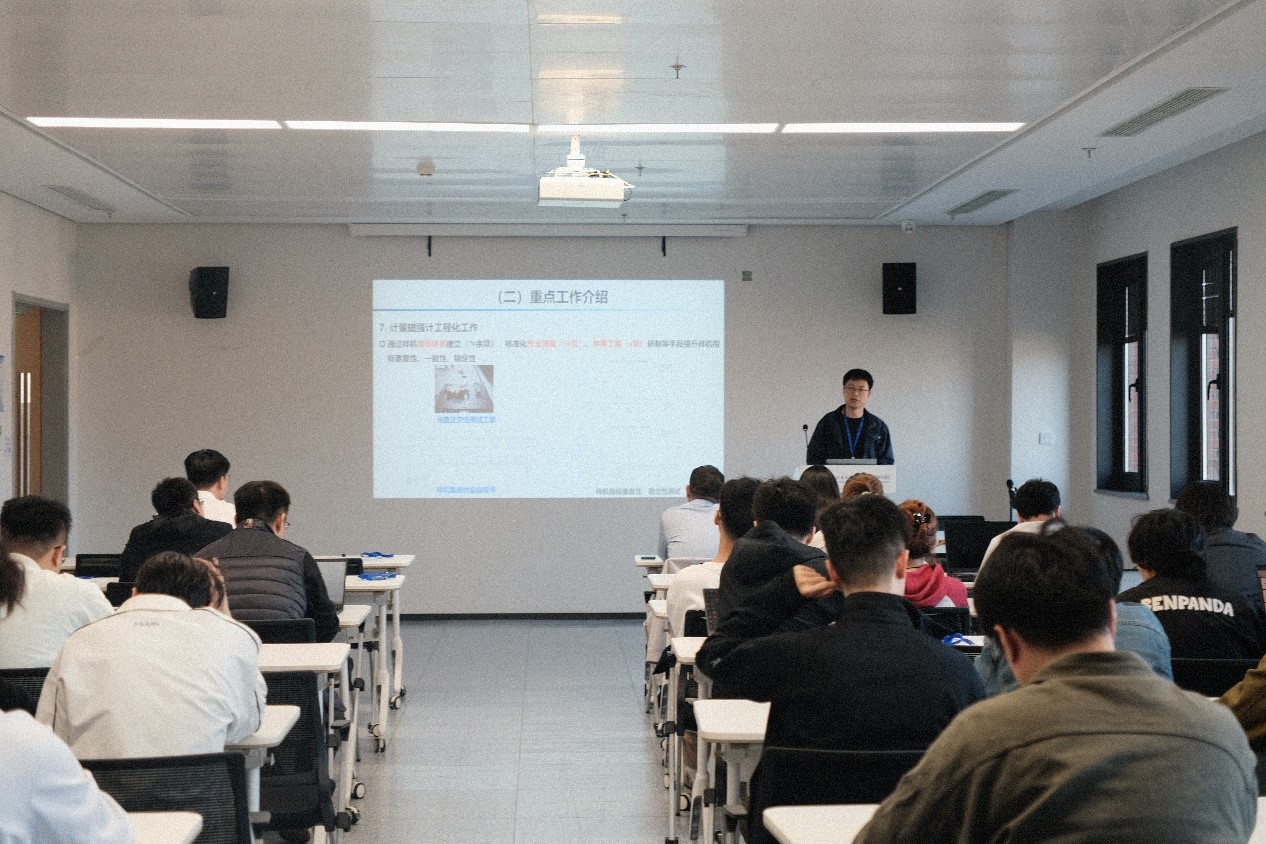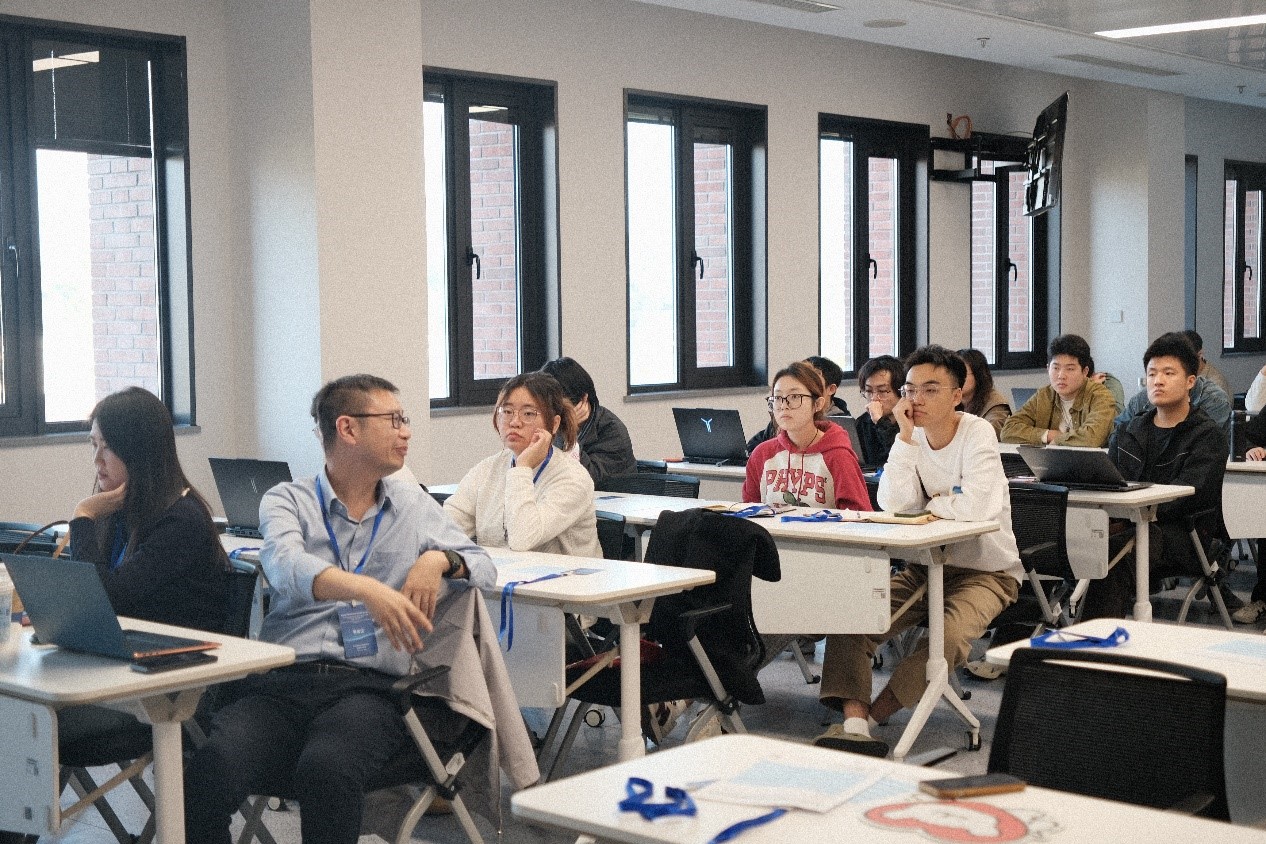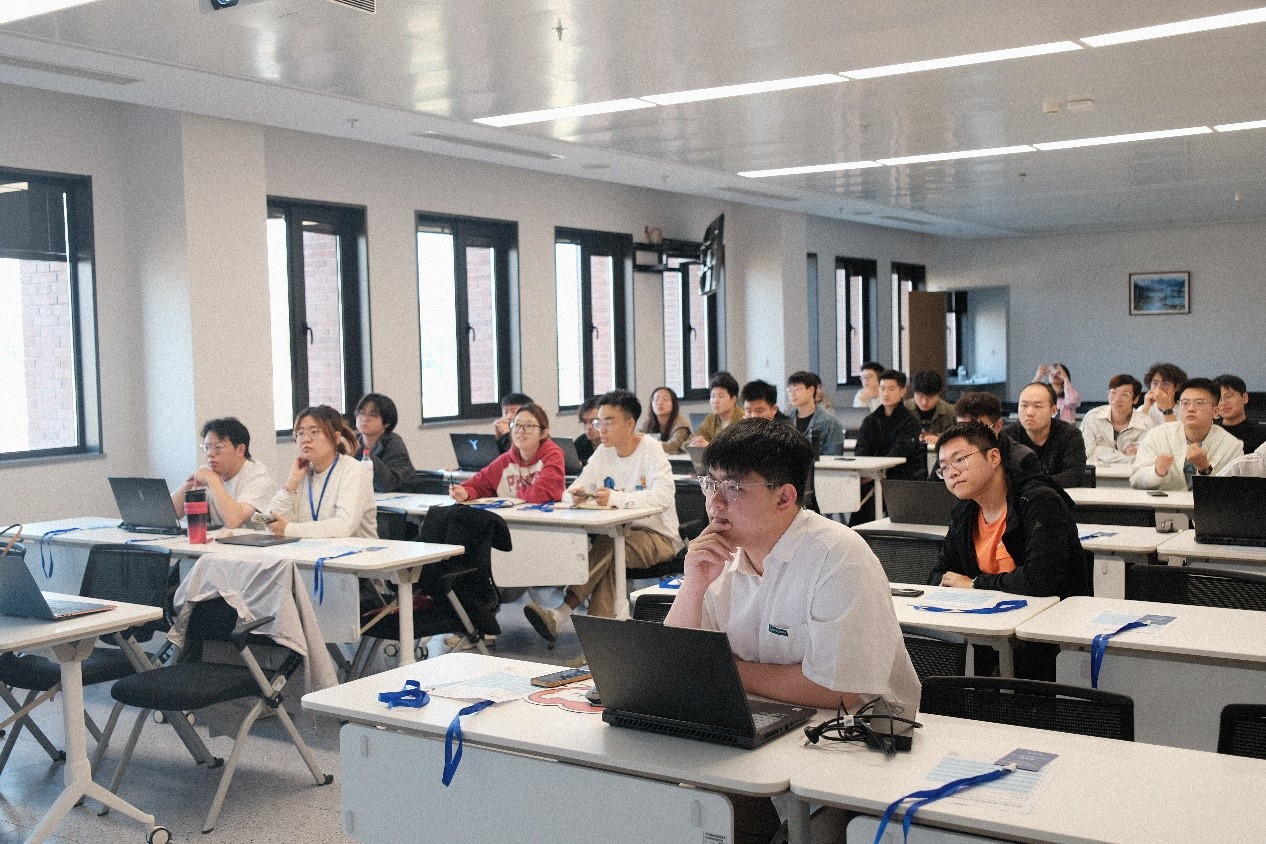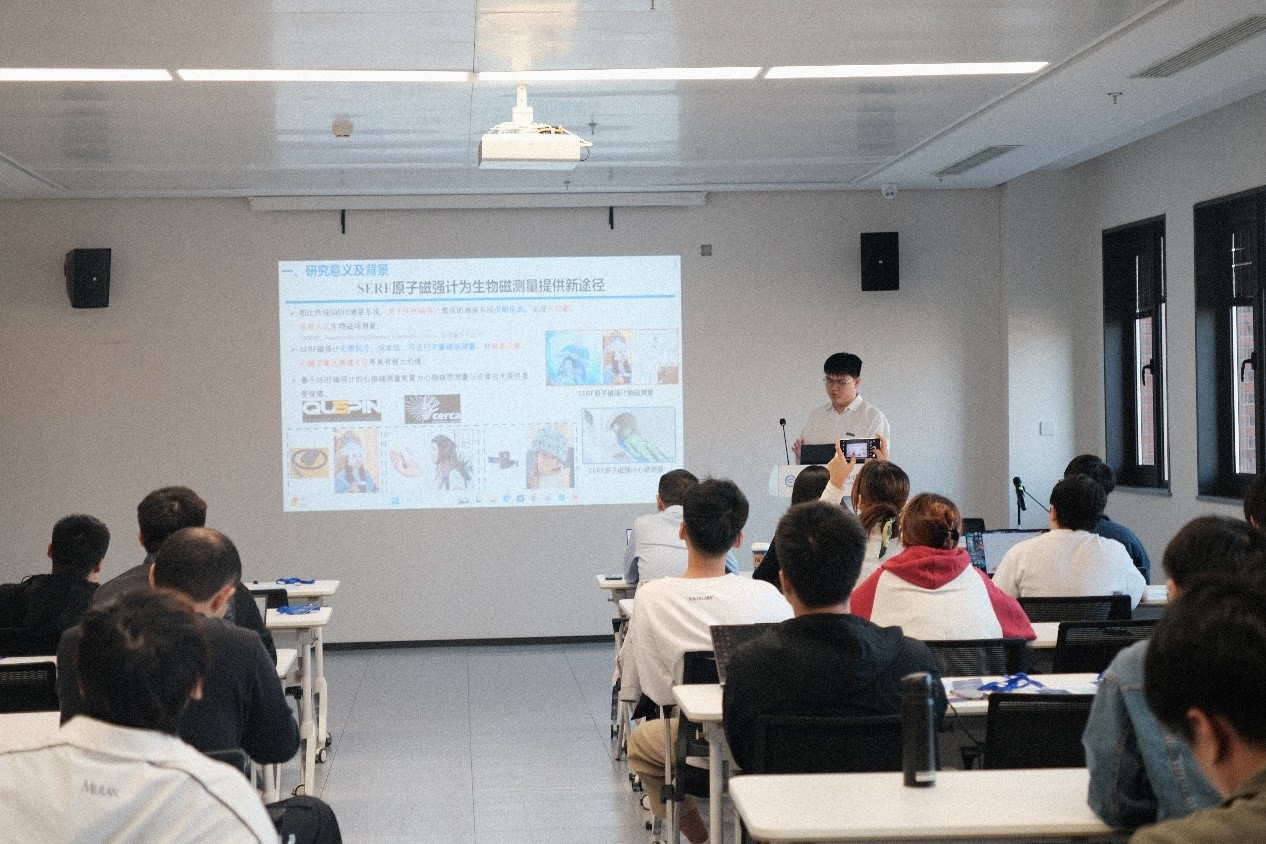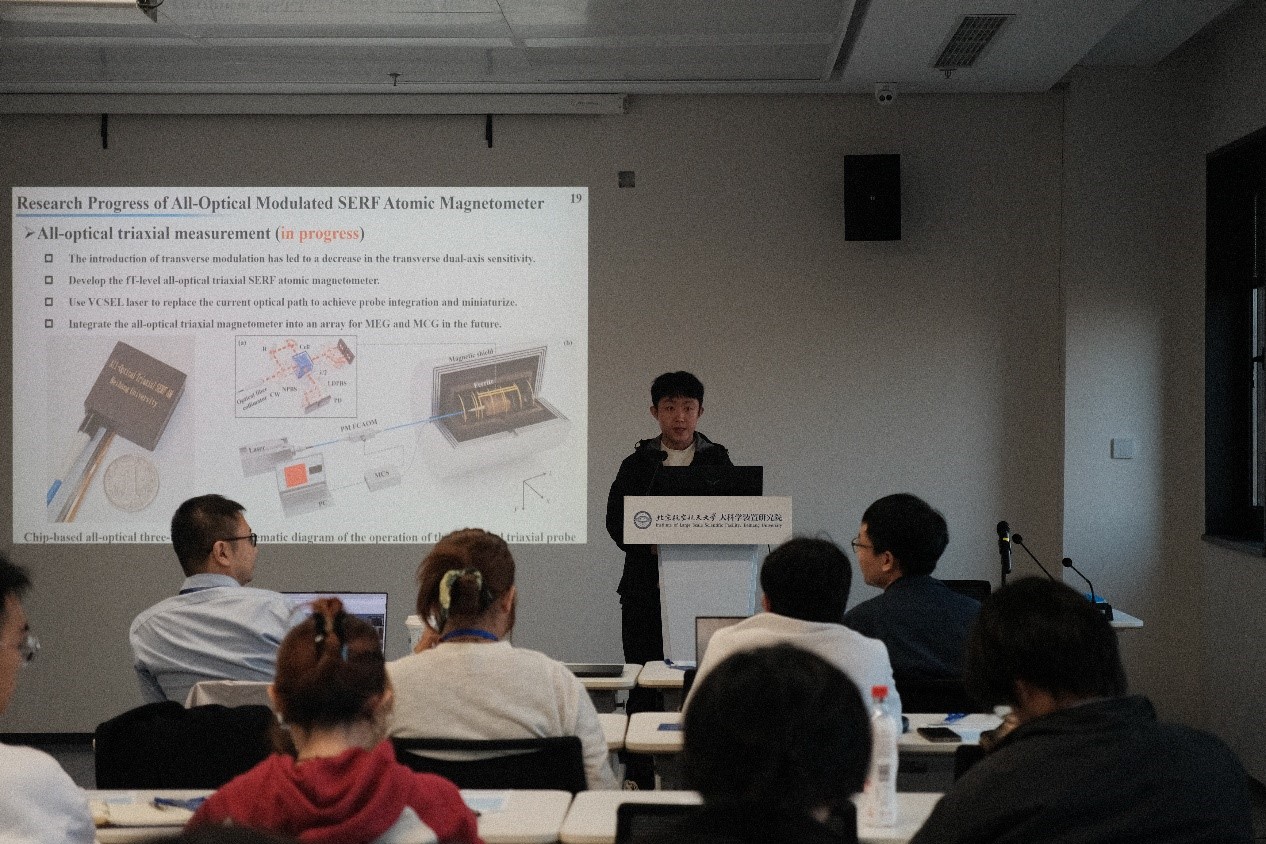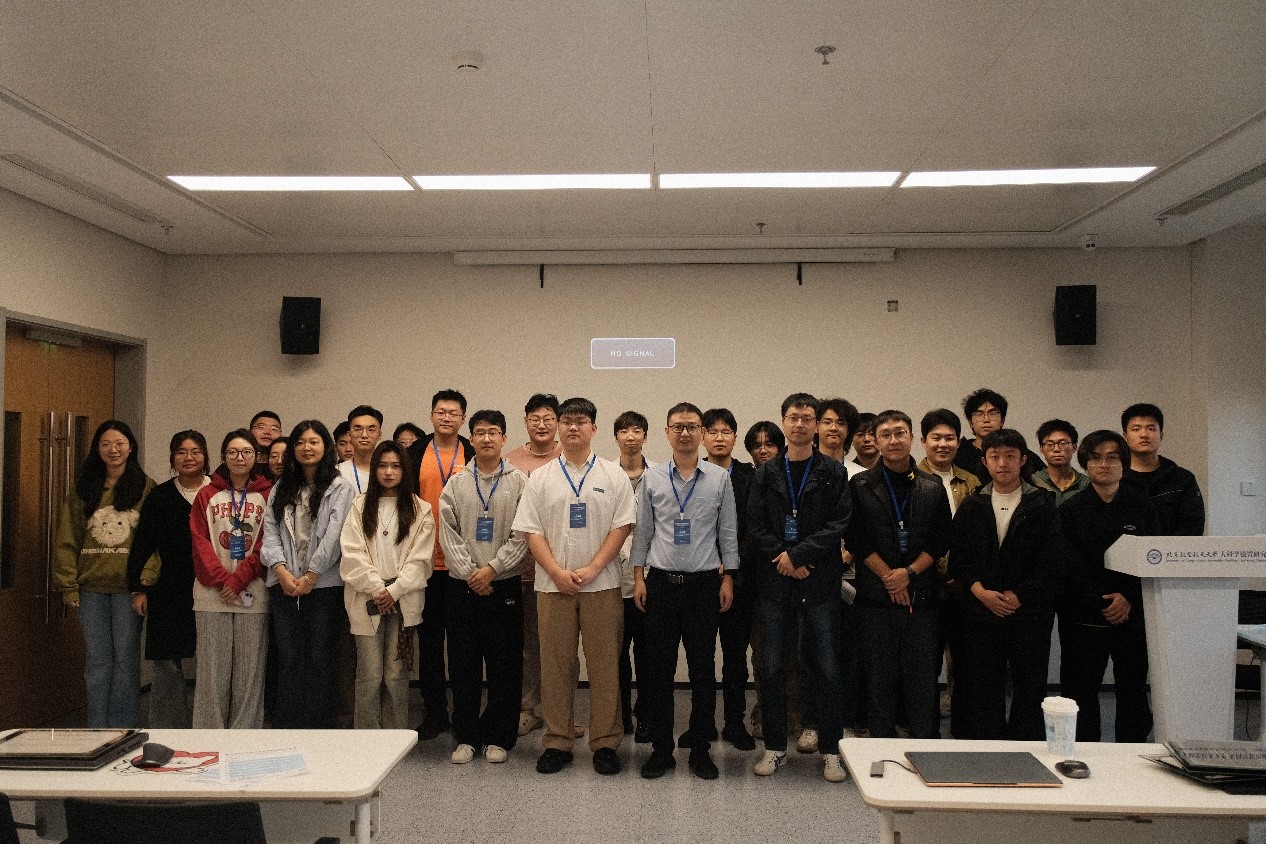Title:
International Conference on Atomic Magnetometer and Applications
Date:
November 16th, 2025 (UTC +8)
Organizer:
Hangzhou Innovation Institute of Beihang University
Symposium Chair:

Dr. Jixi Lu
Personal Bio:
Dr. Jixi Lu is currently an Associate Professor at the School of Instrumentation and Optoelectronic Engineering, Beihang University, China. His primary research interests include atomic magnetometer, high-precision magnetic field control, and low-noise magnetic shield. His group has developed various kinds of miniatured atomic magnetometer, which achieved a sensitivity of fT/Hz1/2 level. They have carried out applications such as extremely-weak magnetic detection, metrology and imaging. His research is funded by over 10 projects, including the Innovation Program for Quantum Science and Technology, and the National Natural Science Foundation of China. He has published more than 50 peer-reviewed papers, 30 authorized patents, and has awarded one first prize of Ministry-level.

Dr. Mao Ye
Personal Bio:
Dr. Mao Ye received a Ph.D. degree in electrical and computer engineering from the University of Michigan, MI, USA, in 2019. He is currently Professor at the School of Instrumentation and Optoelectronic Engineering, Beihang University, China. His primary research interests include integrated photonics, on-chip quantum sensing devices, integrated optoelectronic devices, and CMOS-compatible nanofabrication technology. He is funded by the National High-Level Young Talent Program, and the National Natural Science Foundation of China.
Committee Members:
Dr. Ying Liu, Beihang University, China, liu_ying@buaa.edu.cn
Dr. Ying Zhou, Hangzhou Innovation Institute of Beihang University, China, zhouyingphd@163.com
Dr. Bo Li, National Institute of Extremely-Weak Magnetic Field Infrastructure, China, boli_9110@163.com
Call for papers:
Background:
Atomic magnetometers are a class of ultra-high sensitivity atomic sensors that rely on the measurement of the Larmor precession of atom spin in the magnetic field. In recent years, they have been increasingly and gradually adopted in a wider range of applications. The International Conference on Atomic Magnetometer and Applications, which is organized by the Hangzhou Innovation Institute of Beihang University, aims to promote a deep exchange of knowledge related to mechanisms, devices, technologies and applications of atomic magnetometers. Sessions will include contributed papers, presentations and panel discussions. Scholars (including graduate students) from all related area interested in atomic sensors are all encouraged to submit and/or to attend.
Goal/Rationale:
The International Conference on Atomic Magnetometer and Applications aims to foster a deep exchange of knowledge related to mechanisms, devices, technologies and applications of atomic magnetometers. The workshop will invite researchers from all over the world to discuss the latest research results and cutting-edge topics in the field of atomic magnetometer and other related atomic sensors. We aim to provide a platform for excellent young scholars and graduate students communicate and discuss the recent developments in this area. We hope to provides opportunities for the attendees to exchange new ideas and promote the rapid development of atomic magnetometers.
Scope and Information for Participants:
Topics related to the conference theme - "International Conference on Atomic Magnetometer and Applications" - are particularly encouraged, including:
- Optically pumped magnetometers
- Spin-exchange relaxation-free magnetometers
- Nonlinear magneto-optical rotation magnetometers
- Chip-Scale atomic magnetometer
- High-performance magnetic field
- Extremely-weak magnetic field measument
- Biomagnetic imaging
Topics:
The main topics of this symposium are listed below.
Theoretical Physics
- Astrophysics
- Atomic, Molecular and Optical Physics
- Black Hole Thermodynamics
- Condensed Matter Physics
- Conservation of Energy
- Dark Energy and Matter
- Electromagnetism and Field Theory
- Gamma-ray Emission in the Universe
- General Relativity
- Gravitational Waves
- Hadron Structure, Spectroscopy and Dynamics
- High Energy Physics
- Non-perturbative Field Theory
- Optical Model
- Particle Physics
- Physical Cosmology
- Precision Spectroscopy and Frequency Standards
- Soft Matter Physics
- Solid Mechanics and Special Relativity
- Theory of Astronomical Navigation
- Theory of Astronomical Time Keeping
Meanwhile, submissions aligned with the overall conference theme are also welcome.
Applied Physics
- Accelerator Physics
- Accelerator Research and Development
- Acoustics, Noise and Vibration
- Applications of Particle Trapping
- Biophysics, Medical Physics
- Detectors and Data Handling
- Engineering Physics
- Instrumentation and Control Components
- Magnetic Devices and Materials
- Structural Mechanics and Structural Engineering
- Materials Physics
- Mechanics, Rheology and Tribology
- Nano and Metamaterials
- Neuromorphic Computing
- Nuclear Physics
- Quantum Chromodynamics and Quantum Computers
- Spin Dynamics
- Statistical Mechanics
- Stealth Technology
- Storage Ring Physics
- Systems and Automation Thermodynamics
Computing Innovations
- Artificial Intelligence
- Cluster Computing
- Design and Analysis of Algorithms
- Machine Learning
- Mobile Computing
- Scientific Computing
- Scientific Visualization
- Web and Grid based Simulation and Computing
- Advanced Numerical Algorithms
- Deep Learning
- Image Processing
- Robotics and Automation Sciences
- Sensors and Sensor Networks
- The Internet of Things
- Semiconductors
Mathematics and Applied Mathematics
- Applied Partial Differential Equations
- Integral Equations
- Numerical Analysis
- Probability Theory
- Mathematical Methods
- Nonlinear Problems in Mechanics
- Game Theory
- Control Theory
- Image Processing
- Cryptography
- Fluid Dynamics
- Fuzzy Mathematics and Its Applications
- Algebra and Its Application
- Geometry
- Optimization and Operational Research
- Statistics
- Stochastic Processes
- Baysian Inference
- Regression Analysis Estimation Theory
- Econometrics
- Sampling Theory
- Planning and Scheduling
- Discrete Applied Mathematics
- Algorithms
- Neural Networks
Submission:
Prospective authors are kindly invited to submit full papers that include title, abstract, introduction, tables, figures, conclusion and references. It is unnecessary to submit an abstract in advance. Please submit your papers in English.
Each paper should be no less than 4 pages. One regular registration can cover a paper of 6 pages, and additional pages will be charged. Please format your paper well according to the conference template before submission. Paper Template Download
Please prepare your paper in both .doc/.docx and .pdf format and submit your full paper by email with both formats attached directly to sympo_hangzhou@confciap.org
Important Dates:
| Process | Date & Time |
|---|---|
| Submission Deadline | November 10, 2025 |
| Symposium Date | November 16, 2025 |
| Notification of Acceptance | 7-20 workdays |
Publication:
Accepted papers of the symposium will be published in Theoretical and Natural Science (TNS) (Print ISSN 2753-8818), and will be submitted to Conference Proceedings Citation Index (CPCI), Crossref, CNKI, Portico, Engineering Village (Inspec), Google Scholar, and other databases for indexing. The situation may be affected by factors among databases like processing time, workflow, policy, etc.
Publication info
Title: Theoretical and Natural Science (TNS)
Press: EWA Publishing, United Kingdom
ISSN: 2753-8818, 2753-8826 (electronic)
This symposium is organized by CONF-CIAP 2026 and it will independently proceed the submission and publication process.
* The papers will be exported to production and publication on a regular basis. Early-registered papers are expected to be published online earlier.
